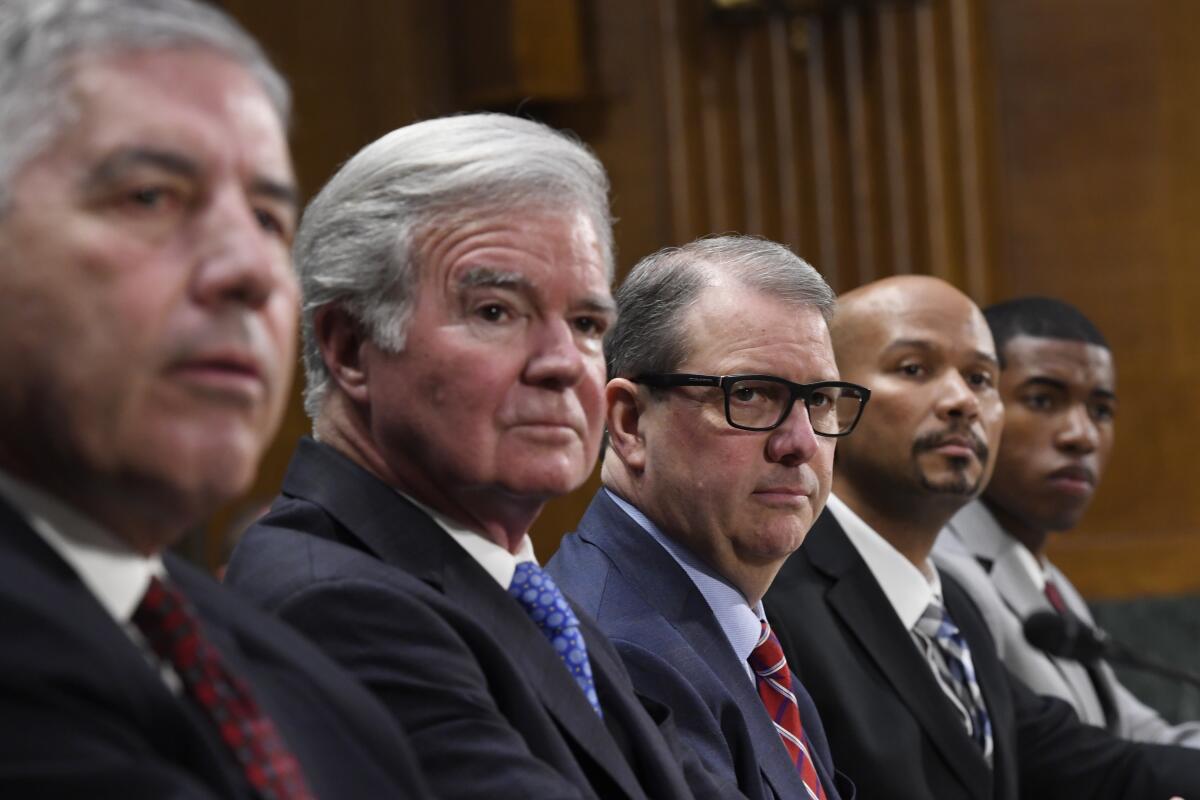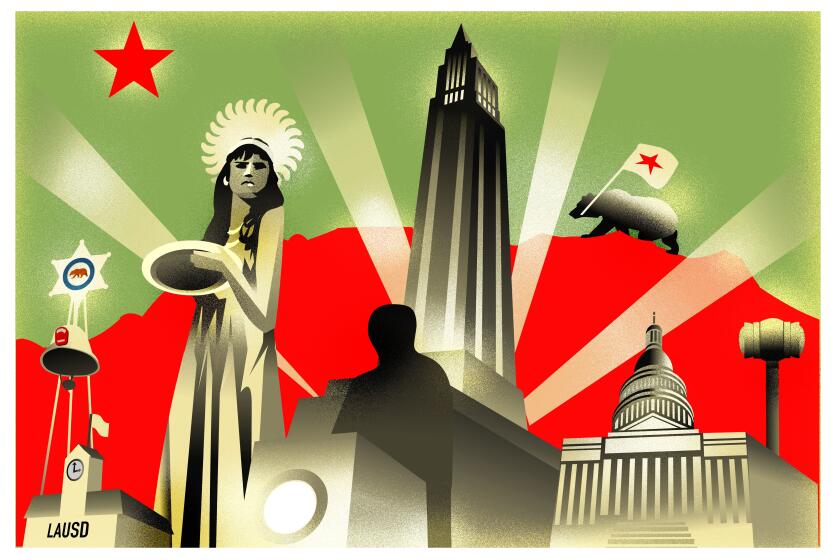College athletes need Congress to protect them from the NCAA

- Share via
California legislators voted last fall to make the state the first in the nation to allow college athletes to profit from their own names and images, despite NCAA rules to the contrary. It’s a good law, even though it doesn’t go into effect until 2023, because it redresses a fundamental unfairness: Colleges can profit from marketing deals based on their athletes’ performances, but the athletes themselves cannot.
Now more than two dozen other states are considering similar bills, part of a growing national recognition that the rules of this particular game need to be changed. The National Collegiate Athletic Assn., which oversees intercollegiate college sports, has softened its initial opposition to letting athletes profit from lucrative deals such as endorsements and sponsorships. In fact, after initially threatening legal action over the California law, the NCAA Board of Governors agreed to let student-athletes earn money by marketing their names and likenesses, and the organization is working on rules that it expects to adopt in January.
Despite the ambiguity of the wording of the new rule — it would require students’ marketing deals to be “consistent with the values and beliefs of intercollegiate athletics,” whatever that means — this was a welcome step by the athletic board. Still, the parameters of protecting such licensing rights should be set not by the NCAA, but by Congress.
California did the right thing in forcing the issue, but a state-by-state approach ultimately could sow confusion and put colleges in states without laws protecting those rights at a recruiting disadvantage with colleges in states that do. Ultimately, it’s best to have a national standard that protects the interests of student-athletes over those of the colleges they play for. And there is some movement on that front. Rep. Mark Walker (R-N.C.) has introduced the Student-Athlete Equity Act, and a Senate subcommittee held a hearing on the issue earlier this month. Senators led by Chris Murphy (D-Conn.) and Mitt Romney (R-Utah) are drafting legislation to address the subject as well. We hope both houses move quickly to resolve this inequity.
Los Angeles Times editorial board endorsements for the U.S. House, California ballot measures and more.
As it stands, colleges are free to sign lucrative endorsement deals with third parties — such as sneaker companies and makers of other athletic gear, sports-drink companies and video game makers — in which they trade on the successes of their athletes while the athletes themselves are frozen out. It’s one thing for colleges not to share with athletes the proceeds of their ticket sales and broadcasting contracts; after all, they argue, scholarship athletes typically benefit from free tuition, room and board. But it’s quite another for those athletes to be barred from finding their own ways to profit from the public’s interest in their accomplishments.
It’s true that such opportunities don’t arise for most student-athletes. Some sports, such as rifle teams and fencing, draw little fan interest. And not all players on the major spectator sports teams — think USC football and UCLA basketball — will be sought after by third-party vendors. But that’s no cause to bar those who might be able to profit from their likenesses from doing so. As it is, a student interested in sports journalism could create a YouTube channel for her own commentary about sports events at her college — and profit from it — while the student-athletes she discusses cannot. That’s absurd.
There will be some devilish details to sort out, including who gets to represent the students in negotiations with third parties. Ramogi Huma, the former UCLA football player who is executive director of the National College Players Assn., has argued that universities, athletic conferences and the NCAA should not be allowed to negotiate on behalf of their student-athletes, which seems reasonable, given the potential conflict of interest. And the risk of abuse could be considerable if colleges can package recruiting offers with side endorsement deals. It may make sense to create a standalone organization to negotiate on behalf of the athletes and monitor any deals to protect them from exploitation.
But those are implementation challenges that can be hammered out. The overriding interest here is in recognizing and protecting the rights of student-athletes to benefit from the use of their own likenesses and images, and from other potential revenue sources such as hosting podcasts or other online programs, speaking fees and personal appearances. NCAA athletes shouldn’t be the only people on campus forced to give up their right to pursue those opportunities.
More to Read
A cure for the common opinion
Get thought-provoking perspectives with our weekly newsletter.
You may occasionally receive promotional content from the Los Angeles Times.










